
EFSA Journal
Scope & Guideline
Elevating standards in open-access research.
Introduction
Aims and Scopes
- Food Safety and Risk Assessment:
The journal focuses on comprehensive risk assessments related to food safety, including the evaluation of pesticide residues, food additives, and genetically modified organisms (GMOs). It aims to provide evidence-based assessments that inform regulatory decisions. - Environmental Risk Evaluation:
The journal publishes studies and opinions on the environmental impact of food production and safety, particularly concerning the effects of pesticides and other agricultural practices on ecosystems. - Innovations in Food Technology:
Research related to novel foods, food additives, and food processing technologies is a core area, highlighting advancements that ensure food safety and quality. - Microbiological Safety:
The journal emphasizes the importance of assessing microbiological hazards in food and feed, addressing emerging threats such as antimicrobial resistance (AMR) and zoonotic diseases. - Regulatory Guidance and Frameworks:
It provides guidance on regulatory frameworks for food safety, including methodologies for evaluating health claims and safety assessments for new food products.
Trending and Emerging
- Cumulative Risk Assessment:
There is an increasing emphasis on cumulative dietary risk assessments, which consider the combined exposure to multiple chemical contaminants and their potential health impacts. - Environmental and Ecotoxicological Assessments:
Emerging themes include the assessment of environmental impacts of food production systems, particularly regarding biodiversity and ecosystem health. - Microbial Risk Analysis and AMR:
Research on antimicrobial resistance (AMR) and microbiological safety is on the rise, reflecting concerns over foodborne diseases and resistance development in pathogens. - Novel Foods and Ingredients:
The evaluation of novel foods, including insect proteins and plant-based alternatives, is trending, addressing consumer demand for sustainable food sources. - Integrated Approaches to Testing and Assessment (IATA):
There is a notable trend towards using integrated methodologies for risk assessment, combining various scientific disciplines to enhance the reliability of food safety evaluations.
Declining or Waning
- Traditional Pesticide Risk Assessments:
There appears to be a reduction in the frequency of traditional pesticide risk assessments in favor of more integrated approaches that consider cumulative risks and broader ecological impacts. - Single-Substance Evaluations:
The focus has shifted from evaluating individual agricultural chemicals to more comprehensive assessments that consider mixtures and their combined effects on health and the environment. - Conventional Food Additives:
Research on conventional food additives is becoming less prominent as regulatory bodies move towards evaluating more innovative food ingredients and natural alternatives. - General Health Claims:
The EFSA Journal has seen a decline in generalized health claims in favor of more precise evaluations related to specific nutrients or bioactive compounds.
Similar Journals

International Food Research Journal
Transforming Ideas into Impactful Food ResearchThe International Food Research Journal, published by UNIV PUTRA MALAYSIA PRESS, serves as a pivotal platform for disseminating innovative research within the field of food science. With an ISSN of 1985-4668 and an E-ISSN of 2231-7546, the journal has successfully established its presence since its inception in 2007, converging its findings through 2024. This esteemed journal holds a Q3 ranking in Food Science, illustrating its valuable contributions to the field as demonstrated by its Scopus rank of 276 out of 389, placing it in the 29th percentile among its peers in Agricultural and Biological Sciences. Although it operates under a traditional publishing model, its academic integrity and focus on high-quality research ensure that it remains a vital resource for researchers, professionals, and students eager to explore advances in food technology, nutrition, and safety. By encouraging interdisciplinary collaboration and critical dialogue, the International Food Research Journal plays an essential role in shaping the future of food science research.
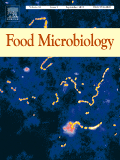
FOOD MICROBIOLOGY
Fostering knowledge that nourishes the food industry.FOOD MICROBIOLOGY is a premier journal, published by Academic Press Ltd - Elsevier Science Ltd, dedicated to advancing the field of food science and microbiology. With an impressive impact factor and recognition as a Q1 journal in Food Science and a Q2 journal in Microbiology, it holds a significant position in the scientific community, emphasizing research that explores microbial phenomena in food products. Established in 1984, the journal continues to thrive with converged coverage until 2025, making it an essential resource for researchers, professionals, and students aiming to deepen their understanding of food-related microbiological issues. While it operates under traditional access options, the journal is highly regarded for its rigorous peer-review process and impactful contributions to agricultural and biological sciences, ranking #26 in Food Science and #22 in Microbiology according to Scopus. Researchers are encouraged to submit their findings that impact food safety, quality, and preservation, fostering a collaborative environment that generates knowledge pivotal for the food industry and public health.

REVISTA CIENTIFICA-FACULTAD DE CIENCIAS VETERINARIAS
Championing open access to vital veterinary research.REVISTA CIENTIFICA-FACULTAD DE CIENCIAS VETERINARIAS, published by the Universidad del Zulia, is a prominent open-access journal dedicated to advancing the fields of veterinary science, animal science, and food science. Since its inception in 1997, the journal has served as a vital platform for disseminating quality research and fostering academic dialogue among professionals and scholars in the veterinary and agricultural sectors. With its commitment to open access since 2010, the journal aims to make valuable research freely accessible to a global audience, thereby contributing to the advancement of scientific knowledge. Although currently categorized in the bottom quartile of various fields—including Animal Science and Zoology, Food Science, and Immunology—REVISTA CIENTIFICA-FACULTAD DE CIENCIAS VETERINARIAS is dedicated to nurturing innovative research that addresses pressing challenges in veterinary and related sciences. Researchers, professionals, and students will find this journal to be an important resource for quality studies that have implications for animal health, food safety, and biotechnology in the context of Venezuelan and international landscapes.
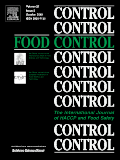
FOOD CONTROL
Exploring the nexus of safety, quality, and sustainability.FOOD CONTROL, published by Elsevier Science Ltd, stands at the forefront of research in the fields of Food Science and Biotechnology, holding a prestigious Q1 ranking in both categories as of 2023. With an impact factor reflecting its influential role in the scientific community, this journal is dedicated to advancing the understanding and control of food safety, quality, and regulations from 1990 to its projected convergence in 2025. Food Control provides a platform for innovative research and critical reviews that address the pressing global challenges in food safety, sustainability, and technological advancements in the industry. Researchers, professionals, and students are encouraged to engage with its content, fostering a deeper understanding of the intersection between food science and biotechnological advancements, all while benefiting from the extensive reach of its Scopus rankings, which place it in the top 5th percentile of its respective fields.
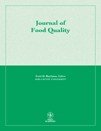
JOURNAL OF FOOD QUALITY
Transforming Food Science with High-Impact InsightsThe Journal of Food Quality, an esteemed publication under Wiley-Hindawi, stands as a vital resource in the dynamic field of Food Science, established since 1977 and operating under an Open Access model since 2017. With its seat in the United Kingdom, this journal focuses on delivering high-quality research and insights pertaining to food safety, risk management, and quality assurance, reflected in its impressive Q2 ranking in both Food Science and Safety, Risk, Reliability and Quality categories in 2023. Researchers and professionals will find the journal’s contributions indispensable, particularly given its Scopus rankings that place it in the top echelons of its fields, highlighting its impact and relevance. By fostering an environment of knowledge sharing, the Journal of Food Quality not only enhances academic dialogue but also supports innovation and best practices in food research and industry applications.

Ukrainian Food Journal
Nurturing a community dedicated to food innovation.Ukrainian Food Journal is an esteemed open-access journal dedicated to advancing the field of food science and biochemistry. Established in 2012 and published by the National University of Food Technologies in Ukraine, the journal serves as a vital platform for researchers and professionals to disseminate their findings on food technology, safety, and nutritional biochemistry. With an ISSN of 2304-974X and E-ISSN 2313-5891, it offers a wealth of knowledge to its readers, promoting innovation and collaboration within the industry. While currently categorized within the Q4 quartile of biochemistry and the Q3 quartile of food science, the journal is progressively gaining recognition, reflecting a commitment to quality research in a competitive field. The journal is indexed in Scopus, ranking #271 in Food Science and #376 in Biochemistry, underscoring its relevance and contribution to agricultural and biological sciences. The Ukrainian Food Journal not only enriches the academic community with its open-access model but also aims to foster dialogue among researchers, professionals, and students dedicated to improving food systems and nutrition. It operates from its headquarters in Kyiv, offering a hub for creativity and advancement in food-related research.
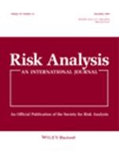
RISK ANALYSIS
Pioneering Research at the Intersection of Risk and SafetyRISK ANALYSIS is a premier journal published by Wiley, focusing on the critical intersection of safety, risk, reliability, and quality within the fields of engineering and physiology. With a strong standing reflected in its Q1 category ranking in Safety, Risk, Reliability and Quality and Q2 in Physiology (medical), this journal is a vital resource for researchers, professionals, and students eager to stay informed on the latest methodologies, theories, and applications surrounding risk assessment and management. Since its inception in 1981, RISK ANALYSIS has been instrumental in shaping the discourse in its fields, garnering a robust reputation verified by its high rankings on Scopus, where it is positioned in the 85th percentile in Safety and the 77th percentile in Medicine. Though it does not currently offer Open Access options, the journal remains essential for those committed to advancing their understanding of risks associated with complex systems. For more insights, RISK ANALYSIS is available to readers throughout its converged years extending to 2024, solidifying its role as a foundational journal for impactful research.

JOURNAL OF FOOD SCIENCE AND TECHNOLOGY-MYSORE
Nurturing the Evolution of Food Science and TechnologyJOURNAL OF FOOD SCIENCE AND TECHNOLOGY-MYSORE, published by SPRINGER INDIA, is a distinguished peer-reviewed journal that has been contributing to the ever-evolving field of food science since its inception in 1974. With an ISSN of 0022-1155 and E-ISSN 0975-8402, this journal holds a commendable position in the Q2 category for Food Science, as per the 2023 metrics, and ranks #58 out of 389 in Scopus's Agricultural and Biological Sciences sector, achieving an impressive 85th percentile. The journal publishes high-quality research articles, reviews, and case studies that cover a wide array of topics, from food preservation to innovative technologies in food processing. Although it is not an open-access journal, it endeavors to disseminate essential knowledge and research strategies that advance food science and benefit both industry professionals and academia. The geographical reach of the journal, alongside its rigorous editorial standards, solidifies its stature as a pivotal resource for researchers, professionals, and students dedicated to the enhancement of food science practices and technologies.

Journal of Food Safety and Food Quality-Archiv fur Lebensmittelhygiene
Advancing the Standards of Food Safety and Quality.The Journal of Food Safety and Food Quality - Archiv für Lebensmittelhygiene is a crucial publication in the realms of food safety, quality assurance, and hygiene, published by M H SCHAPER GMBH CO KG in Germany. As a respected journal with editions dating back to 1959, it has played an integral role in disseminating research, reviews, and case studies that impact policy and practice within the food science community. Despite being classified in the Q4 category across various domains such as Food Science, Health, Toxicology, and Microbiology as of 2023, its contributions continue to foster critical discussions, innovations, and advancements in understanding food safety standards and practices. The journal does not currently offer open access, a decision that may influence the dissemination of knowledge among researchers and practitioners. However, its archival value and historical insights remain significant for those invested in the scientific and regulatory landscapes of food quality and safety.
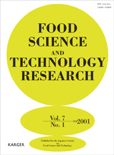
FOOD SCIENCE AND TECHNOLOGY RESEARCH
Elevating Standards in Food Safety and QualityFOOD SCIENCE AND TECHNOLOGY RESEARCH, published by the Japanese Society of Food Science & Technology, is a pivotal journal that encompasses a wide spectrum of research in the fields of food science, biotechnology, and engineering. With its ISSN number 1344-6606 and a digital counterpart E-ISSN 1881-3984, this journal aims to disseminate cutting-edge research and innovative technologies that enhance food safety, quality, and sustainability. Recognized for its contributions, it holds a Q3 category ranking in multiple disciplines, including Food Science and Biotechnology, indicating a significant role in advancing academic discourse. Researchers and professionals can benefit from its insights, as the journal covers an array of topics relevant to industrial applications, marketing strategies, and scientific advancements. Although not an open-access journal, it has a wide reach and is committed to providing high-quality, peer-reviewed content essential for scholars and practitioners in the food science community from 1999 to 2024.